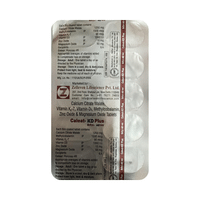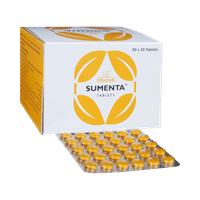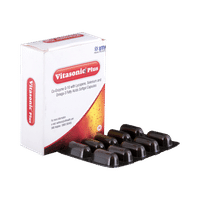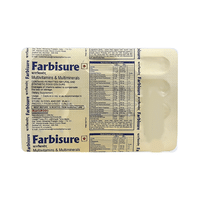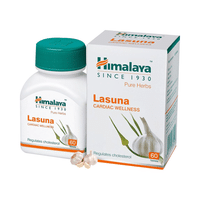Rs.262for 1 strip(s) (10 tablet er each)
food interaction for Carvidon-MT
alcohol interaction for Carvidon-MT
pregnancy interaction for Carvidon-MT
lactation interaction for Carvidon-MT
food
alcohol
pregnancy
lactation
Carvidon-MT Tablet ER may be taken with or without food.
None
None
CAUTION
Alcohol should be used with caution while taking Carvidon-MT Tablet ER.
CAUTION
Carvidon-MT Tablet ER is not recommended during pregnancy as there is positive evidence of fetal risk based on animal studies. However, it may still be prescribed by a doctor in situations where the benefits outweigh the risks.
CONSULT YOUR DOCTOR
Available human data suggest that the drug does not pass into breast milk in clinically significant amounts and is unlikely to harm the infant.
SAFE IF PRESCRIBED
SALT INFORMATION FOR Carvidon-MT
Trimetazidine(35mg)
Uses
Trimetazidine is used to prevent Angina (heart-related chest pain) and Heart Failure.
How it works
Trimetazidine is an anti-anginal medication. It decreases the oxygen requirement of the heart by shifting its metabolism from fats to glucose. As a result, the heart works more efficiently.
Common side effects
Dizziness, Headache, Nausea, Weakness, Itching, Palpitations, Orthostatic hypotension (sudden lowering of blood pressure on standing), Flushing (sense of warmth in the face, ears, neck and trunk), Dyspepsia, Tachycardia, Arterial hypotension, Parkinsonism, Agranulocytosis (deficiency of granulocytes in the blood), Low blood platelets, Hepatitis (viral infection of liver)
Metoprolol Succinate(23.75mg)
Uses
Metoprolol Succinate is used in the treatment of Hypertension (high blood pressure), Angina (heart-related chest pain), Arrhythmia, heart attack and migraine.
How it works
Metoprolol Succinate is a long-acting beta blocker that works specifically on the heart. It works by slowing down the heart rate and makes the heart more efficient at pumping blood around the body.
Common side effects
Cold extremities, Headache, Dizziness, Slow heart rate, Rash, Depression, Diarrhea, Tiredness, Shortness of breath, Gastrointestinal disturbance, Hypotension (low blood pressure), Stroke, Chest pain, Confusion, Short-term memory loss, Sleepiness, Paresthesia (tingling or pricking sensation), Blurred vision, Sexual dysfunction, Ringing in ear, Hair loss, Agranulocytosis (deficiency of granulocytes in the blood), Dry eye, Worsening of psoriasis, Sweating, Photosensitivity, Taste change, Nightmares
SUBSTITUTES FOR Carvidon-MT
No substitutes foundExpert advice FOR Carvidon-MT
- Trimetazidine prevents new attacks of angina but does not stop an acute attack.
- Does not affect heart rate, blood pressure at rest or during exercise.
- Improves HbA1c and blood sugar levels in diabetes patients.
- Avoid driving or using machinery if you feel dizzy after taking Trimetazidine.
- Trimetazidine prevents new attacks of angina but does not stop an acute attack.
- Does not affect heart rate, blood pressure at rest or during exercise.
- Improves HbA1c and blood sugar levels in diabetes patients.
- Avoid driving or using machinery if you feel dizzy after taking Trimetazidine.
Frequently asked questions FOR Carvidon-MT
Trimetazidine
Q. Is Trimetazidine a beta blocker?
No, Trimetazidine is not a beta blocker. It is an anti-anginal medicine which is used in combination with other medicines to treat angina pectoris (chest pain caused by coronary disease). It protects the heart cells from getting affected by the reduced oxygen supply during an episode of angina.
Q. Who should not take Trimetazidine?
You should not take Trimetazidine if you are allergic to it or have severe kidney problems. Patients with Parkinson’s disease should also avoid taking Trimetazidine. Parkinson’s disease is a disease of the brain which affects movement and causes trembling, rigid posture, slow movements and a shuffling, unbalanced walk.
Q. Can Trimetazidine be used in elderly patients?
Trimetazidine should be used with caution in patients aged more than 75 years of age. Usually, a lower dose is prescribed in elderly patients to reduce the chances of adverse effects. It is important to continuously monitor such patients.
Metoprolol Succinate
Q. How long does Metoprolol Succinate take to work?
The time taken by Metoprolol Succinate to start working varies from person to person. Usually, Metoprolol Succinate starts working within 15 minutes. However, in some patients, it may take up to 2 hours to start showing its beneficial effects. It starts acting slowly and the maximum or full effect is usually experienced within a span of 1 week. In case you do not feel any difference while taking Metoprolol Succinate, do not panic. The medicine exerts its beneficial effects when taken for a long time.
Q. Is taking Metoprolol Succinate dangerous?
Metoprolol Succinate is usually safe when taken as per the doctor’s prescription. This medicine exhibits dangerous effects if the medicine is stopped suddenly. Stopping the medicine suddenly can cause an abrupt increase in the heart rate and affect its activity, which can be dangerous for heart failure patients and can even lead to a heart attack in some patients. So, do not stop the medicine suddenly and take it for the prescribed duration.
Q. Does Metoprolol Succinate help you sleep better?
Metoprolol Succinate belongs to the beta-blockers class of medicine. Though their effect on sleep varies from person to person, it has been found that these medicines are known to alter the sleep pattern and disturb sleep in few patients. On the other hand, it has also been seen to promote better sleep in patients with increased heart rate and anxiety by calming down the heart and nerves. Do consult your doctor in case you have any sleep disturbances.














